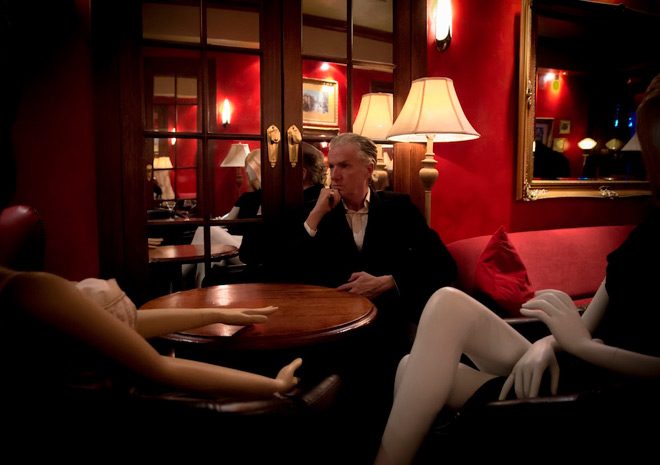
Spending a great deal of his career as a focal point in Nick Cave and The Bad Seeds, Harvey declared his independence from the band back in 2010, and has since gone on to release a slew of albums, including his most recently 2017’s Intoxicated Women. He currently collaborates with the much beloved PJ Harvey, though there is no relationship and Mick Harvey has little time to sit back and reminisce on the past. Recently we caught up with the busy man to talk his time as a member of The Bad Seeds, his latest album, working with others, and so much more.
CrypticRock.com – You have been involved in music professionally for over four decades now, and in that time you were an intricate part of Nick Cave and The Bad Seeds, worked on various film soundtracks, and produced a lengthy list of records. First, tell us, what has this incredible journey been like for you?
Mick Harvey – It probably looks like a more incredible journey from the outside. From where I am, it’s been surprising; it’s not really the journey I expected. I found myself surprised to become a producer and arranger and all that stuff. Occasionally I’ve done interviews and I’ve described how I started out being a musician, just being a guitarist in a band. Really I didn’t have any plans beyond that, I didn’t even necessarily plan to be a musician. For me, the journey has been surprising and very rewarding. I didn’t set out with a particular ambition to achieve certain things or whatever, it’s all come along quite accidentally. I suppose if I went back to where I began, I was probably interested in doing something in the creative field, but I didn’t really a have a master plan. The whole journey is quite surprising to me.
CrypticRock.com – It is interesting where life leads you sometimes; you never know where it is going to take you.
Mick Harvey – Yeah, well if you don’t have a specific plan (laughs). Some people have an idea of what they want to do, they have a forward plan and so forth; and a lot of people work through that or achieve what they’ve set out to do to a lesser degree or more than they expected. It’s still along the lines that they’ve set for themselves. I still don’t understand how I became a musician. That’s okay, I enjoy it! It’s something that I think I am okay at so I kept doing it.
CrypticRock.com – (laughs) Yes, agreed! You are doing a pretty good job. As stated already, you were a vital part of The Bad Seeds for over thirty years prior to parting ways back in 2009. Now concentrating heavily on your own music, do you look back at your time with The Bad Seeds fondly?
Mick Harvey – I don’t really look back on it particularly. I do look back on it fondly, but I’m not looking back on it much at the moment because it still seems very recent. In a way, the whole thing was such an immersive experience and I was so deeply in it for so long, in a little way it feels nice to be free of it. That doesn’t necessarily have negative connotations; it’s just a different kind of sense around me when not being part of the Bad Seeds and that whole world is no longer there. It’s quite liberating for me. In terms of my time and where my energies are focused and my brain is, it is opening up things to other possibilities. I tend not to look back and I will tell you why: I’m not really a looking back kind of person. If I were to look back, I loved the band and what I was doing for a long time. It’s not really a question of wanting to. In fact, I’d like to look back more, there’s a lot of good things back there (laughs). The only way you keep going if you are a creative artist is to keep moving forward. You don’t stop and look back: I think that’s for other people to do.
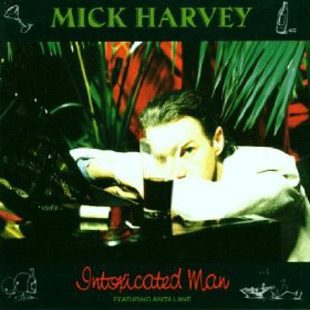
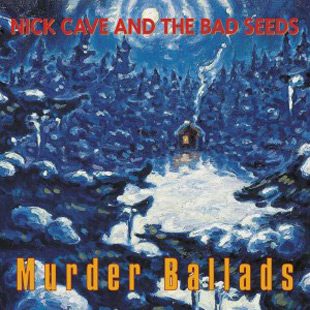
CrypticRock.com – That is a very good point. Sometimes as consumers we do that often, but one can imagine when you are creating, you want to keep moving forward.
Mick Harvey – I was at a recent thing in Melbourne and I’m going to use this as an example. Melbourne is big music city and has had a big music scene for decades; it’s where everybody ends up in Australia really, it is where most of the music in Australia ends up coming from. There is an institute called The Australian Music Vault which is like an archive with things to do with the music scene; a lot of it is just artifacts and paraphernalia. I spoke to the director of the archive about this launch that they were doing. This stuff, a lot of it is nostalgia; all things around established artists and scraps of paper that they were advertising that they are looking at. It’s really got nothing to do with the music, there is no music in there at all. It’s all the surrounding bits and pieces, for me it’s completely irrelevant.
The week before I was planning a show in Melbourne with PJ Harvey. It’s just irrelevant to me that stuff, I am still going out there doing something that’s new and different. That requires me to be really putting myself into it which is creating all this stuff around it that people collect, that stuff is meaningless in a way. It’s looking back and holding onto memories and the whole event around this archive was that kind of thinking, it’s about preserving something. I am not preserving anything, I am still trying to do the next thing because otherwise you just stop.
CrypticRock.com – That is also very interesting point raised. You have been very active through the years, clearly that is evident by your work: you put out a lengthy discography on your own, now you have this new record, Intoxicated Women. This comes two decades after your solo debut, 1995’s Intoxicated Man. What was the concept behind this album?
Mick Harvey – So far as a concept, the first two albums I did twenty-plus years ago. The ideas for those were pretty obvious: it was a project or experiment to see what I could do if I could translate the works of Serge Gainsbourg into English. If it was a good idea, it was all very speculative in a way; it was a great big experiment and a project for me. Now 20 years later, my record label finally reissued both those albums as a package so I finally played some shows. I had never played live shows around original albums; that is because it was going to be too expensive and I had no idea if people were interested. It did actually take awhile for those albums to establish themselves and find a fan-base. If I had gone out touring at the time, it would have cost and we would have lost a lot of money with the strings; it’s still a very expensive thing to do.
Doing the shows so that the original Intoxicated Man and Pink Elephants (1997) album, it was almost like the musician started saying, ‘So why don’t you just record some more songs?’ I was thinking, ‘Well, it’s really a pretty bad idea!’ I really felt I’d dealt with it 20 years ago and I really hadn’t looked at it much since. I just got back to doing other things, original work, collaborating with people that I have with through the years. At some point I just decided maybe it would be a really nice idea to expand the whole project. I thought if I am going to do one album after 20 years, I can’t just do one – I really should do two – or it just looks like a strange afterthought.
I did two albums but to do the two, there was only a dozen songs that I was interested to look at; for the most part they were songs that I didn’t feel I would be able to translate successfully the first time. The resources that I had, they seemed too hard to approach a lot of them. A lot of those songs are on Delirium Tremens , the third album, which came out the first part of last year. In fact they are already on a list that I was asked to put together, a Spotify playlist by me, when the double album came out. I was able to list the songs; I just called the playlist The Untranslatables (laughs). That’s largely the list that I began with when I reignited the project.
That was my principal list but to do two albums I realized I was going to have to do a bit more research. What obviously presented itself was all the material he was writing for women back in the ’60s, where he stopped doing solo albums for awhile. He was working with all young girls singing, and he was writing Pop songs for them and putting them in Eurovision. He was writing with actresses, he worked with Juliette Gréco; a whole variety of different types of women but he was writing principally for women. It was a vehicle for his writing to try and sell it because his own solo career had stalled; he was a un-sellable, he was a funny looking guy, this sort of stuff. To find enough material, I had to go and delve into all that material which was fascinating, a lot of it I had never heard. These days because of the way things are, now you just see most of this stuff on YouTube and you look up translations of lyrics all across the internet. It’s a completely different project to work on this time than it was 20 years ago. I was able to sort all sorts of methods of translation, existing translations, and work on it myself without having to outsource to the professor of French at some university; which is what I had to do the first time. Constructing it all together over a long time, I was able to work through with a friend of mine – who speaks fluent French – and just work with the different resources and construct the lyrics out of that. I was just able to source all sorts of material that would have been completely unavailable 20 years ago.
The concept behind the project was really just to re-engage with what I started, be able to really enjoy it this time and not have it be a big pressure. I did feel a lot of pressure and responsibility with the first albums to get it all right; it was a big undertaking – risky project at the time – and I really wanted to try and get it right. This time I felt more relaxed with it, I was able to enjoy the process and, in a way, complete what I started. If there is any concept there, it’s really just to finish what I started. There was enough material there that I liked that was going to a game and presenting it. I know it’s pretty over the top to do four albums: people think I must be obsessed with the guy, I’m not really. I’m interested in the work, that’s become something I’m connected with and I just took the opportunity to run with it.
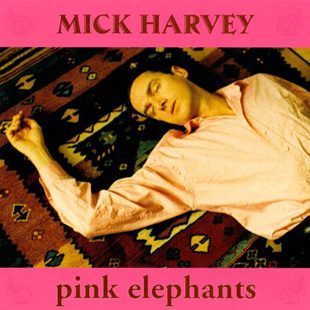

CrypticRock.com – It is all quite fascinating. Intoxicated Women has is a surreal-sounding record and the arrangements are all quite beautiful. Even for people not familiar with the topic at hand, it is quite a wonderful listen.
Mick Harvey – It was very interesting this time, it was a bit different. The first recording is all the basic stuff I did with the band; I had a band in Melbourne. There was a particular set-up that was done, it brought a good result. This time around we recorded in two different studios, one in Melbourne and one in Berlin with Larry and Bertrand playing. Both the situations were really conducive to having a great time, and playing in really nice studios to record in; very simple with operators that is their studio.
It brought a very good result technically with the sound, and then we mixed the whole thing with Lindsay Gravina back in Melbourne – he’s the guy who worked on Rowland S. Howard’s last two solo albums he did. I think he is a producer who works on mixes in a very particular way; they come out with a very particular texture. As a producer you make those kinds of decisions. Lindsay is actually a producer, as well. You choose to work with people on the basis of the sound they make, or if people are going to be able to contribute in that way. I picked Lindsey specifically because I thought he would give it a really interesting texture and sound.
CrypticRock.com – Texture in music is something that is lost in modern recordings a lot of times with digital, but this does not lose that; it really has a beautiful sound to it with the textures.
Mick Harvey – This is something that I noticed with Lindsay particularly, a lot of people do good with it. The digital thing is one problem that really there are ways to work with that sound-source and make it organic, you get the best of both worlds if you can do that. I’ve noticed that with Rowland’s last album, Pop Crimes (2010). We were working over it, then when I heard the final mastered album, he really made something happen with that whole experience. It had a very strong sound: it was very elemental, it was very engaging for the ear. So when I hear something like that, then I think – I suppose I logged that in the book – that may come in handy some day (laughs).
I went to Lindsay with this project; it was the hope of getting that kind of result out of the end result having a very strong sound in that way. When people have a really good understanding of the overall sound picture, they’ve come to develop their own way in order to create that whole sound that becomes very useful. As to someone who is more on the producer side, when I’m in that role – when I hear that I really notice it, obviously – my ears perk up and I start listening to what’s going on there. That’s what I did with the album! We recorded it in Birdland Studios, Lindsay’s place, and a fantastic studio in Berlin called Candy Bomber – which is run by an old associate that I did work with in the early ’90s called Ingo Krauss.
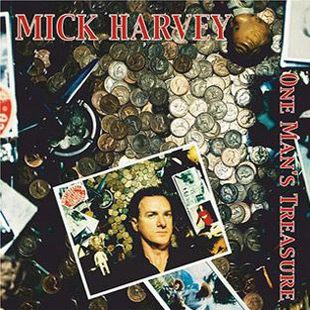

CrypticRock.com – It sounds like it was really a wonderful experience. You have also collaborated with other artists as well, including the extraordinarily talented PJ Harvey. From your vast experience on offering your skills to other artists, what are some of the most important things you have learned about working with others?
Mick Harvey – When I’m working with different people, they want me to do different things. Some of them go, ‘I just want you to play bass.’ Some want me to be the drummer and some of them want me to play guitar, sometimes they just want me to be the keyboard player. What I’ve learned from them…you are always learning from people you work with because they have different possibilities and different ideas; there is always learning going on, the vast majority of it is positive. What do you learn from that? I suppose to stay true to your own style and trust that that’s what people want you to be doing. I am not a session musician: I’m not someone who could just sit there and play all the sheet music in front of me. I wouldn’t enjoy that! I expect people want me to be there because of my personal style and what I will bring to the work. I supposed I’ve learned over the years to trust that everybody actually wants that, who I’m working with anyway.
CrypticRock.com – Yes, and that is what most people want. Speaking of your past work, around ten years ago, you released an EP with your band The Wallbangers.
Mick Harvey – Yes, I just had a couple of funny songs and I thought I’d just put them out; there was this record label in Spain who were interested. I said, ‘Look I’ve got these funny rock songs, if you want to put it out fine.’ It wasn’t a very serious project! Although it does lead me to the next thing I wanted to do, it would almost be a bit more along those lines. It would be different but it would be making a band project and stuff that I would be writing. I am in the very early stages of that. I don’t think I would do it as The Wallbangers or treat it in that way. That was meant to be, on some level, throw away Rock music; it was kind of a bit of funny really.
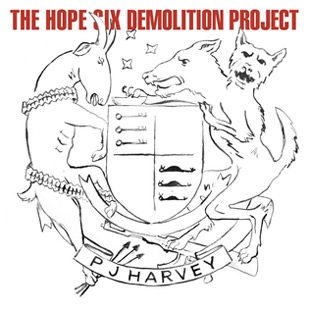
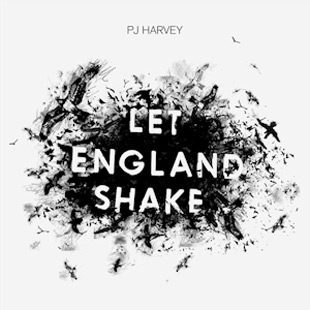
CrypticRock.com – Yes, well it will be exciting to see where you go forward with your future projects from here.
Mick Harvey – We will see what happens! All this year I am on tour with PJ Harvey, a lot in bits and pieces. In between times I haven’t got any plans to do major work of my own, so I can prepare and figure out what I want to do next and if I want to do anything at all. That’s a luxury to just come home and stay with the family, and think about what I want to do next.
CrypticRock.com – It is always good to spend time with your family after being away so long. My last question for you is pertaining to movies. CrypticRock.com covers music and Horror/Sci-Fi films. If you are a fan of these genres, what are some of your favorite films?
Mick Harvey – I’m not a big Horror fan. Maybe back in the ’80s I watched a lot of Horror movies that were around to try and figure out what I thought about them; it was never a genre I found much of a connection with. I am really into Drama, obviously Science Fiction incorporates a lot of Drama in dramatic films. I can enjoy Science Fiction! Some Science Fiction falls over into Action. The thing with Science Fiction is they usually have interesting ideas in the script and the storytelling that are challenging, perhaps more so than you get in your normal Drama. Historical or Contemporary Drama tend to be conventional stories that solve moral conundrums. I don’t search out Science Fiction but a lot of it is really good.
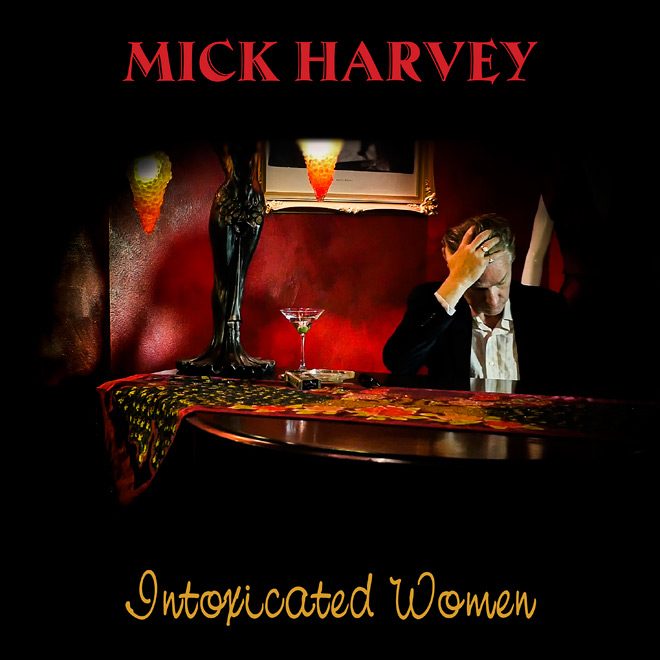

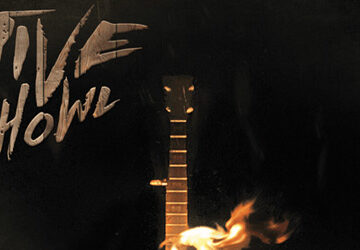
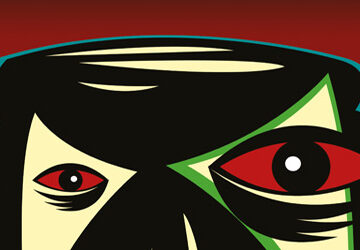


No comment